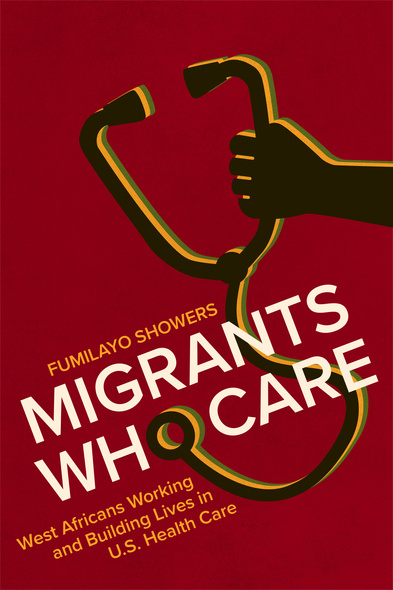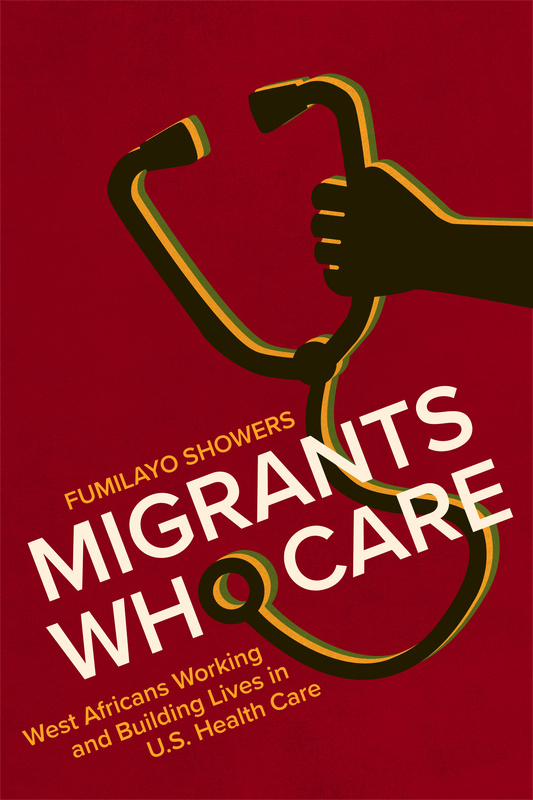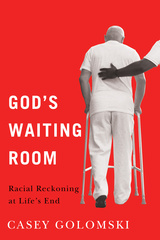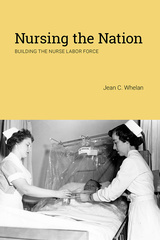
208 pages, 6 x 9
5 bw images
Paperback
Release Date:15 Sep 2023
ISBN:9781978828988
Hardcover
Release Date:15 Sep 2023
ISBN:9781978828995
Migrants Who Care
West Africans Working and Building Lives in U.S. Health Care
SERIES:
Carework in a Changing World
Rutgers University Press
As the U.S. population ages and as health care needs become more complex, demand for paid care workers in home and institutional settings has increased. This book draws attention to the reserve of immigrant labor that is called on to meet this need. Migrants Who Care tells the little-known story of a group of English-speaking West African immigrants who have become central to the U.S. health and long-term care systems. With high human capital and middle-class pre-migration backgrounds, these immigrants - hailing from countries as diverse as Cameroon, Sierra Leone, Ghana, Nigeria, and Liberia - encounter blocked opportunities in the U.S. labor market. They then work in the United States, as home health aides, certified nursing assistants, qualified disability support professionals, and licensed practical and registered nurses.
This book reveals the global, political, social, and economic factors that have facilitated the entry of West African women and men into the health care labor force (home and institutional care for older adults and individuals with physical and intellectual disabilities; and skilled nursing). It highlights these immigrants’ role as labor brokers who tap into their local ethnic and immigrant communities to channel co-ethnics to meet this labor demand. It illustrates how West African care workers understand their work across various occupational settings and segments in the health care industry. This book reveals the transformative processes migrants undergo as they become produced, repackaged, and deployed as health care workers after migration.
Ultimately, this book tells the very real and human story of an immigrant group surmounting tremendous obstacles to carve out a labor market niche in health care, providing some of the most essential and intimate aspects of care labor to the most vulnerable members of society.
This book reveals the global, political, social, and economic factors that have facilitated the entry of West African women and men into the health care labor force (home and institutional care for older adults and individuals with physical and intellectual disabilities; and skilled nursing). It highlights these immigrants’ role as labor brokers who tap into their local ethnic and immigrant communities to channel co-ethnics to meet this labor demand. It illustrates how West African care workers understand their work across various occupational settings and segments in the health care industry. This book reveals the transformative processes migrants undergo as they become produced, repackaged, and deployed as health care workers after migration.
Ultimately, this book tells the very real and human story of an immigrant group surmounting tremendous obstacles to carve out a labor market niche in health care, providing some of the most essential and intimate aspects of care labor to the most vulnerable members of society.
Showers illuminates an extremely important story that needs to be told about Black populations who are doing critical support work and yet remain invisible–Black West African immigrants. Migrants Who Care is the first study of its kind.
Migrants Who Care illustrates how West Africans created an ethnic niche in health care as both workers and entrepreneurs and forged a pathway to the American dream. This did not happen smoothly but arduously against structural barriers of racism, neoliberalism, and xenophobia. With deftness and nuance, Showers convincingly shows ethnicity to be both an advantage and disadvantage for migrants in pursuit of this pathway, offering jobs in ethnic-owned facilities but barriers in diverse health care settings. This book is a must-read for scholars of care, labor, migration and race.’
FUMILAYO SHOWERS is an assistant professor of sociology and Africana studies at the University of Connecticut.
List of Abbreviations
Introduction
1 Moving to America
2 Pathways and Entryways into Care
3 The Business of Care: Ethnic Entrepreneurship
in Care
4 Disability Support: The Transformation of
Immigrants into Care Workers
5 Patient-Provider Interactions and Professional
Identities in Nursing
6 Nursing a Pathway to the American Dream
Conclusion
Afterword: COVID-19
Appendix A: Methodological Appendix
Appendix B: Types of Health Care Jobs
Acknowledgments
Notes
References
Index









